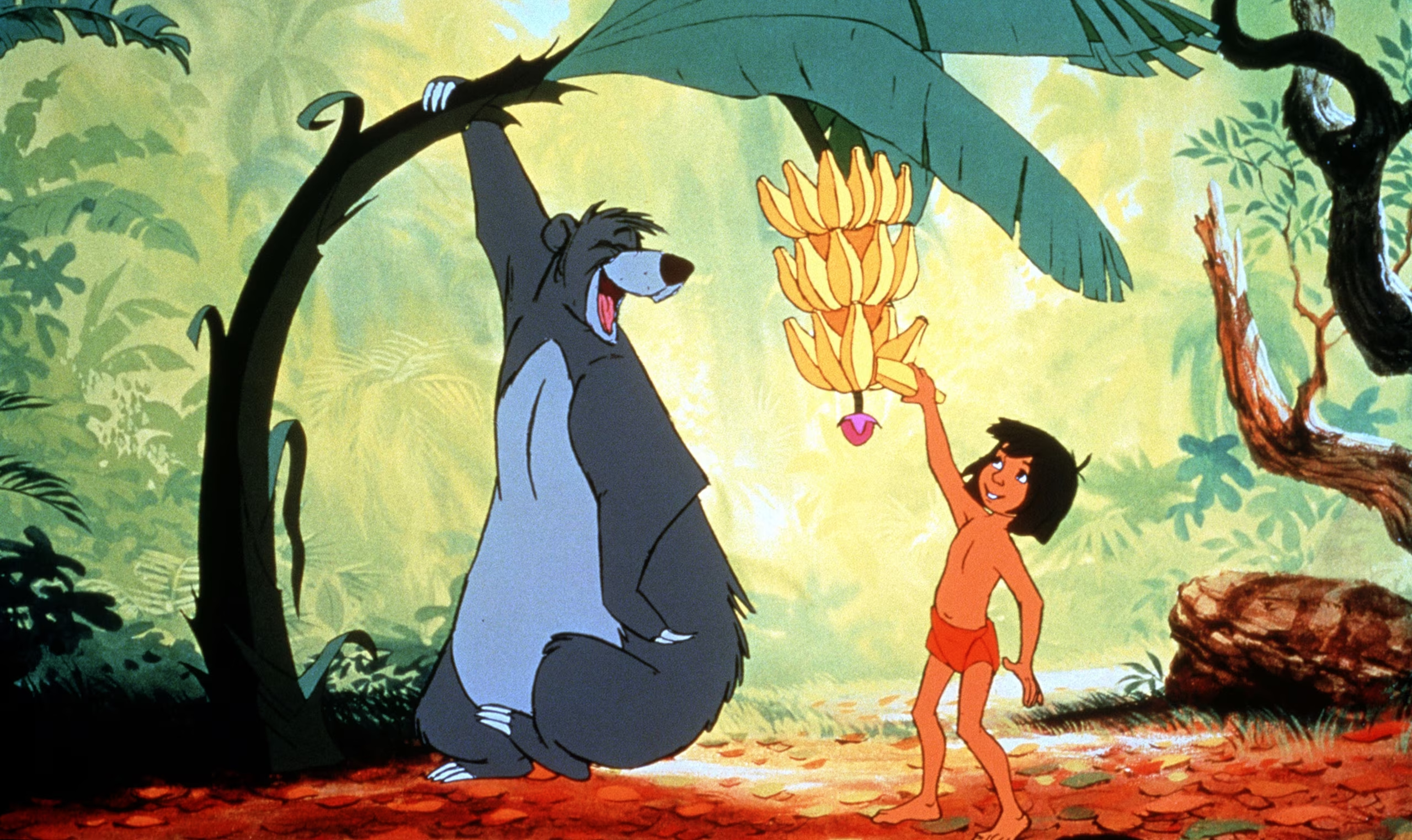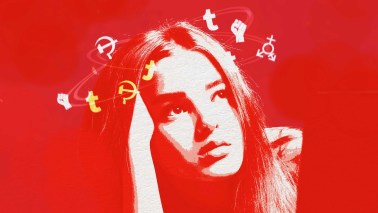When Sven-Göran Eriksson’s coffin was being paraded through the streets of his home town, ahead of his funeral, it was followed by a marching jazz band playing ‘The Bare Necessities’. The song, from Disney’s The Jungle Book, was intended to honour the former England manager’s request that his send-off should be celebratory rather than mournful. But, despite a personal fondness for Sven – which I wrote about here in The Spectator – this choice left a sour note for me.
This was because of a perhaps obscure but nevertheless deeply held dislike which I have developed for the fictional character associated with the song: Baloo, the bear. I cannot stand him. He is a classic feckless father figure who, for me, has been wrongly revered by film audiences for decades. Baloo gives me, as they say these days, the ick.
He’s an ursine incarnation of one of those flaky fathers who is great fun once a month
It wasn’t always this way. In my first encounters with him, as with most audiences, I found Baloo quite the charmer. This was despite the fact that I had never actually seen the film. I wanted to, a lot. But there was the problem then of Disney’s so-called seven-year rule: instead of selling secondary rights to TV once their films’ initial cinema release life had petered out, as most other studios did, Disney would keep its films back and re-release them in cinemas for every new generation. So you could only see them every seven years or so – and only in cinemas, never on TV.
In those pre-digital days of the 1970s, my only exposure to The Jungle Book, The Aristocats and the rest was in ad hoc clips on Disney specials or on the BBC children’s show Screen Test. This was nominally an observational quiz show – but in reality, no one actually cared about the questions (except my school days peer, Julia Elkerton, who appeared as a contestant in 1980, which, at the time, was the most stellar thing anyone I knew had ever done). No, Screen Test’s real purpose was in getting the rights to use clips, particularly from those elusive Disney films. And ‘The Bare Necessities’ sequence was perhaps the most frequently used clip of all.
Many friends had The Jungle Book soundtrack album too, so I knew all the big numbers very well and ended up feeling that I knew the film without having actually seen it.
The Jungle Book was released in the UK on 24 December 1967 – when I was a baby. Then re-released in 1975 – which I missed because of a family trip overseas. And then again in 1983. It wasn’t until this third issue, when I was well into my teens, that I actually saw The Jungle Book properly, doing that thing beloved of teenagers: returning to childish things with supposed irony almost as soon as they have purportedly outgrown them.
Finally seeing the film in its entirety didn’t disappoint. It’s one of the best animated Disneys of all and Baloo, voiced by Phil Harris, is its comic centrepiece. After that solitary 1983 viewing, I wouldn’t see it again for another two decades, by which time I had children of my own – and the seven-year policy had been dropped because of the lure of home video sales.
So we now had our own copy and – because it was the one Disney that all three of our children would agree on – I would end up seeing it many, many times. On one family holiday, in 2010, we watched it every single evening for two weeks.
It was during these repeat viewings that I began to reassess Baloo. There was no sudden epiphany, more a dawning realisation: he isn’t the charming rogue I had long imagined, he’s an idiot. Within minutes of meeting the boy, Baloo almost kills him by nearly dropping a rock on his head when eating ants (‘you’d better believe it’). He succeeds in losing Mowgli to kidnapping monkeys as he nods off on the job. He then botches the boy’s rescue with his ill-judged duet with the monkey king. And having taken on the role of father – ‘I love him like he was my own cub’ – he soon finds himself breaking his promise to Mowgli that he can ‘live in the jungle all my life’.
Though Baloo does bravely insert himself between man-cub and tiger in their final showdown, it is ultimately Mowgli who saves himself, while the narcissistic bear is left to exaggerate his heroism and bask in his own premature eulogy. Kipling’s bear was a free spirit too: ‘Old Baloo, who can come and go where he pleases because he eats only nuts and roots and honey.’ But he was never the clown that Disney made him.
In the movie, Baloo is a vain, shallow oaf who acts rashly and foolishly, and, for all his promises, ultimately betrays Mowgli more gravely than anyone. He’s an ursine incarnation of one of those flaky fathers who is great fun once a month but doesn’t do the unrewarding hard work that steady parenting requires. The more admirable parental character is the panther, Bagheera. With his quiet, selfless guidance and good sense – not just giving in to childish demands – Bagheera is much more a true friend to the boy.
I think it’s significant that The Jungle Book was released just six months after the so-called Summer of Love. And a Beatles cameo, in the form of the quartet of Scouse vultures, does suggest that the influence of the counterculture is at work here. So it’s not a stretch to suggest that Baloo is a proto-hippie, anticipating later stoner characters in a similar vein like Shaggy from Scooby Doo and even perhaps The Dude from The Big Lebowski. These types can be memorable and funny – but should never be left in charge of a child.
This article is free to read
To unlock more articles, subscribe to get 3 months of unlimited access for just $5








Comments
Join the debate for just £1 a month
Be part of the conversation with other Spectator readers by getting your first three months for £3.
UNLOCK ACCESS Just £1 a monthAlready a subscriber? Log in